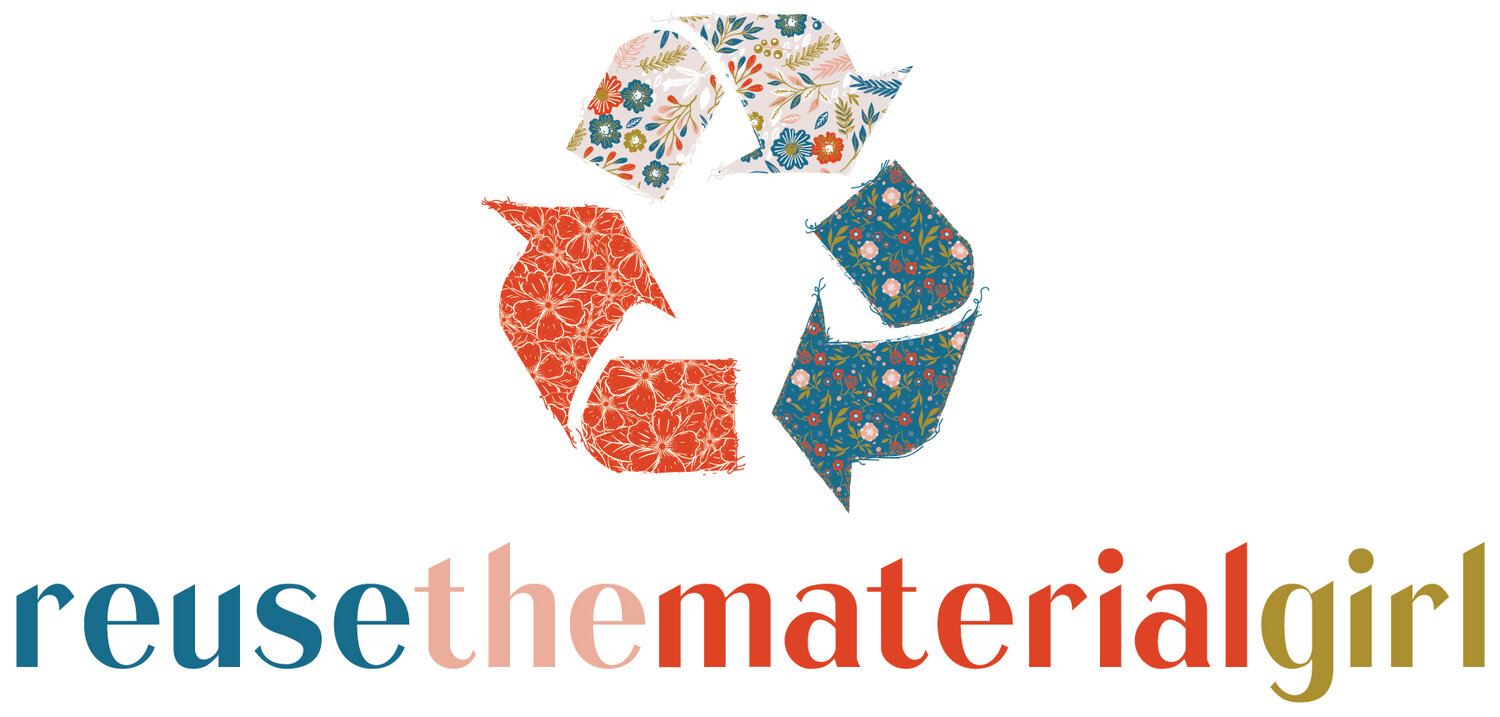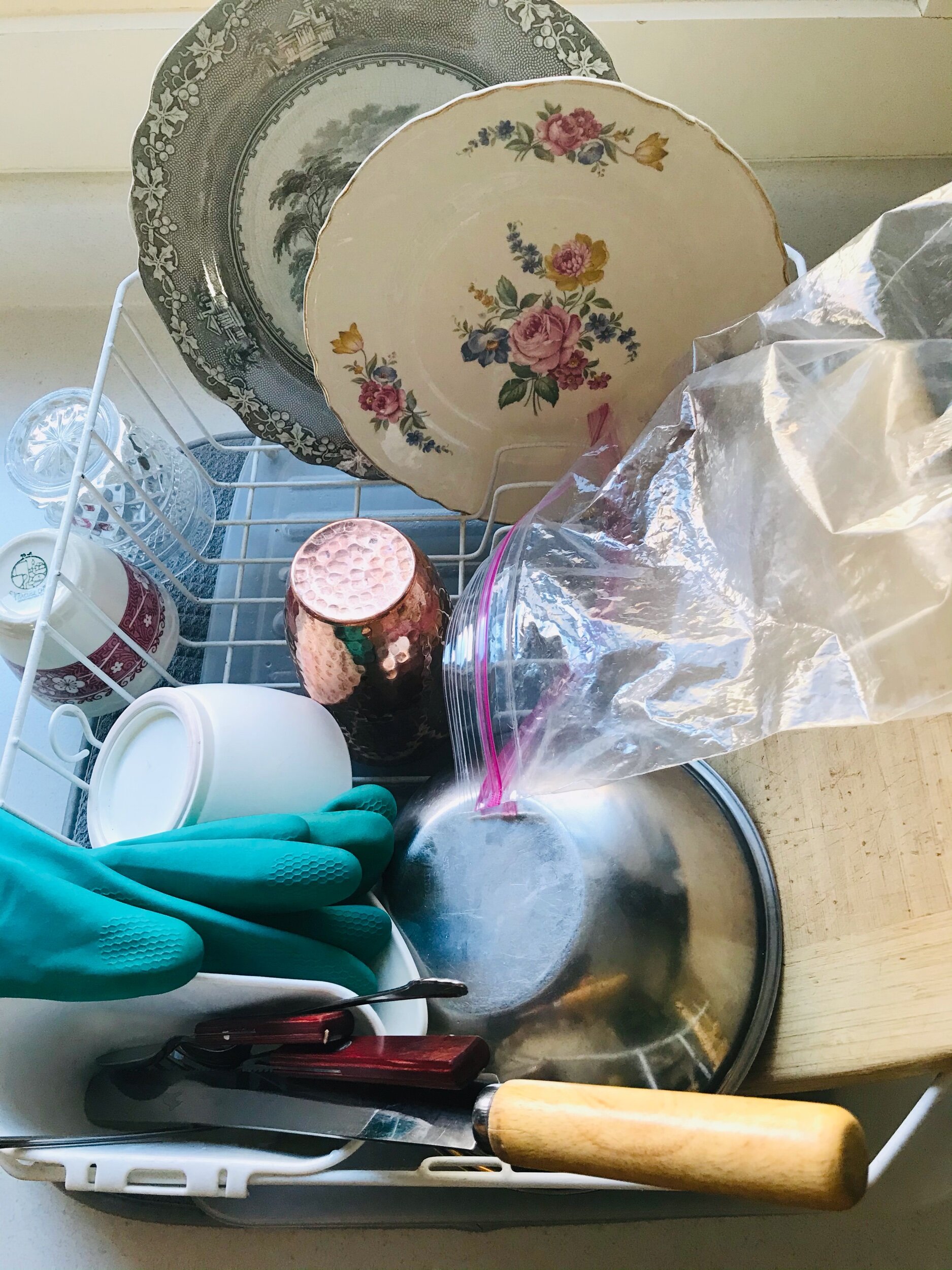A Reusable Home (first in a series): Who’s turn is it to do the dishes?
A few weeks ago I was at a thrift shop and was strongly considered buying a picnic basket I saw on display, though I managed to avoid the twenty dollar temptation (a high thrift store price, I thought, even though the condition was excellent). The basket looked much like a small suitcase that fastened with leather straps. It was fabric-lined and had a set of lovely metal cutlery, real glass stemware, and dishes- white with little blue flowers. Everything fastened securely into place with straps, and underneath was a blue floral tablecloth and set of cloth napkins. Of course the basket with all those items was heavy, and one wouldn’t want to carry it very far on a picnic. But it was incredibly lovely, and though I didn’t need it (I have several picnic baskets, though none as elaborate as this) I still thought about buying it with the idea: why not just use it at home? Open it up and keep on the countertop; use the contents, and store them inside the basket on the counter after washing? Alas, my counter space is at a premium- as it may be for many people- but using the dishes in the basket would certainly be more enjoyable than a practice I’ve seen a lot of over the years: folks stocking their shelves at home with disposable goods- particularly paper plates and cups- and using them instead of actual dishes. If the idea behind this practice is simplicity- not having to wash dishes and put them away- then why not use the picnic basket? Another option is to do as a colleague of mine who shares a family home with seven members, across three generations. They have just seven plates, seven glasses, seven sets of cutlery, etc. Things aren’t stored in the cupboard very often, as the hard-working dishes take their rest between meal time duty in the dish drainer. My colleague said her family hardly uses the dishwasher because their few dishes are needed, washed immediately, then needed again.
Now, I love pretty dishes too much to be able to only have three plates, three bowls, etc.- one for each member of my family. But I also can’t imagine filling a kitchen cupboard with paper plates, heeding not for the waste created after they’re used, much less the effort to produce them and bring to my kitchen. Wastefulness freaks me out. I honestly can get stuck on thoughts of supply chains and limited natural resources and factory workers and transportation of goods when I contemplate the existence of any household item. The last thing I want to do is squander the resources and efforts of so many humans, so much energy production, by using an item just once.
This is in keeping with my little motto, Use All the Pretty Things. Unless the food on my plate is being served up at an actual picnic or other such outdoor setting, I don’t want to eat from something disposable, no matter how fancy Chinet gets with their designs. It’s also in keeping with my desire to live a more non-consuming lifestyle. I happen to be someone very prone to breaking things, but even I can manage to use a plate or glass more than a single time without losing it in an accident.
A very sad part, to me, of my mom’s declining years was her loss of energy and zest for life that led to her using disposable kitchen items rather than the masses of beautiful cups and plates and bowls she’d gathered throughout life. The disposable items themselves weren’t sad, but the fact that she washed her little paper plate, styrofoam bowl, and plastic cup and put in the dish drainer until the next use made me want to weep. With the limited energy she had, she usually did the washing up; but perhaps there was some sort of lure that if she didn’t feel up to it, she could just toss the items away. I get that. But I wish now she was still here, and I would buy her the picnic basket full of pretty dishes. We could put the rest of her things out of sight out of mind, and she could focus on just the items in the basket, the pleasure of using them. And if she didn’t feel like washing up after a meal, I wouldn’t fault her for placing the dirties in the basket and closing the lid and going to take a nap.

